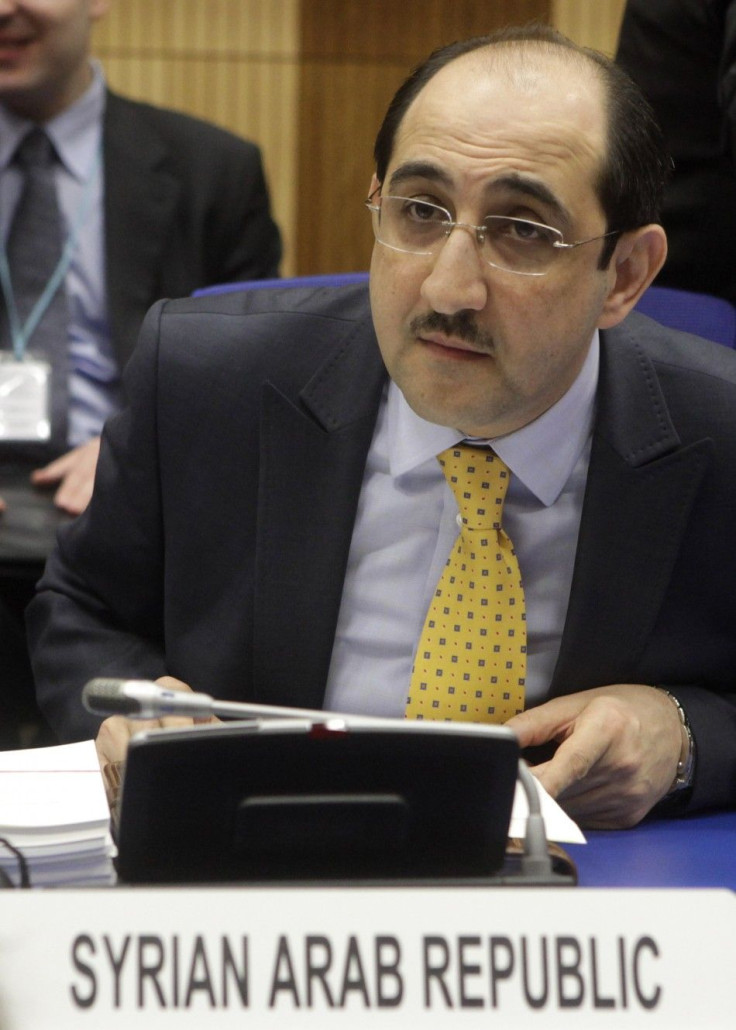Arab States and Iran Demand Israel Reveal Details of Its Nuclear Weapons Program

Islamic countries who are attending an International Atomic Energy Agency (IAEA) conference in Vienna, Austria are demanding that Israel open up its nuclear program to international scrutiny, citing that the Jewish State’s secret atomic weapons program poses a dire threat to the Mideast.
Israel’s “nuclear arsenal threatens the world,” said the Iranian representative, while Lebanon said its neighbor’s nuclear program could accelerate an arms race in the region that could lead to “unpredictable consequences.”
Syria believes Israel has a huge military nuclear arsenal,” following charges by Israel that Syria is preventing the United Nations from investigating Damascus’ own nascent atomic program.
Israel and the United States believe Syria and Iran are the principal threats in the Middle East in terms of potentially developing atomic weapons.
In 2007, Israeli warplanes bombed a site in the Syrian desert it ascertained was an embryonic reactor designed to produce plutonium for nuclear weapons – a charge Damascus denied.
In the Middle East there is a unique feature: Israel is the only country which has a military and nuclear arsenal, outside the realm of any international control, Syrian Ambassador Bassam Al-Sabbagh told the IAEA's annual General Conference.
In response, the head of Israel's Atomic Energy Commission, Saul Chorev, blasted Syria and Iran, at the Vienna conference
Regimes that brutally repress their own citizens ... have no hesitation when it comes to non-compliance with their legally binding obligations under international law,” he said.
The international community has failed to convey a decisive message to such rulers. [They] still consider non-compliance as a low risk. The international community should prove them wrong. Violators should be punished.”
Meanwhile, the IAEA passed a resolution calling on Middle Eastern nations to adopt a Nuclear Nonproliferation Treaty (NPT). In November, the member nations will hold rare talks on entirely getting rid of nuclear weapons in the Middle East.
Israel is currently not a member of the NPT.
Al-Sabbagh added that for the November discussions to be of value, all participants [including Israel] should be parties to the NPT and the agenda of such a meeting should focus on the issue of creating a nuclear weapons-free zone in the Middle East.”
Indeed, back in June, under pressure from the U.S., the IAEA's 35-nation board voted to report Syria to the UN Security Council over its refusal to allow inspectors to visit its Dair Alzour site (which Israel bombed in 2007).
Al-Sabbagh said Israel's attack on Dair Alzour violated international law.
As a consequence of this heinous aggression the military building, which did not have any relation with nuclear activities, was destroyed, he said.
However, Syria has since agreed to allow inspectors to Dair Alzour. Al-Sabbagh said a meeting with UN officials will be scheduled for October.
Israel has never confirmed nor denied the existence of a nuclear weapons program. The Jewish state said it would join NPT only if a comprehensive peace treaty was established with Arab states and Iran. In the event Israel joined NPT, it would be forced to renounced nuclear weapons.
However, the rhetoric against Israel at IAEA was not as vociferous as in previous years. For example, the Arab states did not seek a resolution targeting Israel as a grave threat to peace in the region as they have in prior years.
Israel welcomed this development as a positive move.
The decision by the Arab group, from whatever motivations and constraints, not to table this year a draft resolution is ... a positive move, David Danieli, deputy director of Israel's atomic energy commission, told the IAEA conference.
However in order to foster genuine trust and confidence among all regional parties, this must be accompanied next year by withdrawing permanently this politically divisive item from the agenda of the conference.”
© Copyright IBTimes 2024. All rights reserved.





















